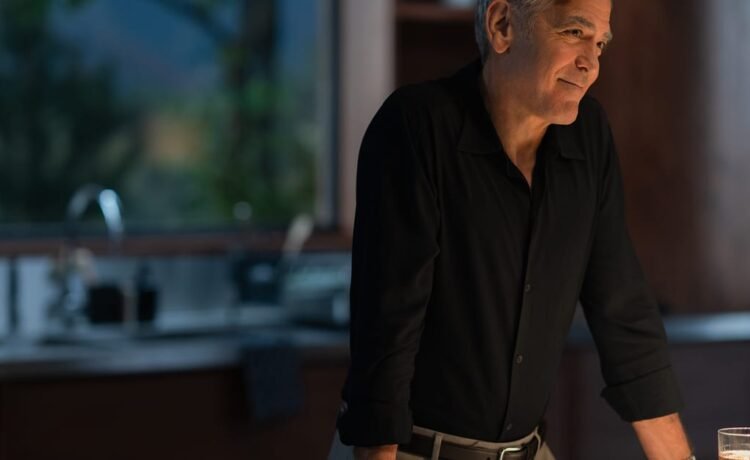
While Kelly reckons with his own personal failings – occasionally detailed in flashbacks filling out his path to stardom – his crew have problems of their own. His manager Ron is constantly on the phone to his incredibly understanding wife Lois (Greta Gerwig) as she deals with their own familial crisis, while Kelly’s publicist Liz (Laura Dern) frantically tries to ensure her client’s unscheduled holiday doesn’t put him in breach of contract. A hive of other personnel – assistants, make-up artists, stylists, security – buzz around Kelly, who professes to want freedom but doesn’t seem to have the first clue what he’d do with it. Yet it’s easy to see why all these people remain in his orbit; Kelly is effortlessly charming and frustratingly good at getting his own way.
The freewheeling train ride across Italy sees Kelly meet a bizarre array of bumbling European stereotypes (Jamie Demetriou and Patsy Ferran’s flustered British tourists among the more egregious) but finds its emotional core in the relationship between the star and his long-suffering manager. The long-suffering Ron has sacrificed much of his personal and professional happiness to be at his employer’s beck and call, and Sandler’s gentle hangdog aura is a pleasant foil to Clooney’s star-wattage, as well as a study in contrasts between two indisputable Hollywood heavyweights.
But the weight of this core relationship and novel question of how one finds personal meaning in a life defined by transactions veers scattershot in places, as easily diverted and prone to flights of fancy as Kelly himself. Kelly’s regrets – chiefly being an absent father and a bad friend – are hardly groundbreaking, particularly within the context of a Noah Baumbach movie. So much of the film leans on the dramatic heft that Clooney, Sandler and the spirited supporting cast are able to bring to the table. (It’s a crying shame there’s not more of Gerwig, on fine form as a gently frazzled LA mum juggling a neurotic teenager and a toddler with preternatural comedic timing.)
It’s a testament to the smartness of this casting that Jay Kelly works as well as it does, even if the echos of Hollywood mythmaking are unavoidable. Perhaps that’s part of it; “All my memories are movies” Kelly remarks, and a charitable reading suggests the most cloyingly sentimental and obvious moments of Baumbach and Mortimer’s script merely reflect their protagonist’s crisis of confidence, as he searches to find himself the only way he knows how: through tropes, takes and tableaus. Depending on one’s appetite for affectionate ruminations on the fragility of the male ego among society’s most exalted, your mileage may vary.
Then there’s the Clooney of it all. In press before the film’s ritzy Venice Film Festival première, Clooney professed to not “give a shit” if people think he only ever plays himself (Jay Kelly seems to be powerful evidence to support his statement). There’s no separating the art from the artist in this instance; the very construct of Clooney as The American Movie Star is so tied into Jay Kelly it feels difficult to imagine the film being as charming as it is with anyone but Clooney in the central role. (If a comparable American figure exists, it’s Tom Cruise, who presumably swore off any remotely interesting or left-field roles after Tropic Thunder.)
In fact, when Kelly finally makes it to the big film festival award ceremony and a highlight reel plays clips from his filmography, naturally it’s a montage of Clooney’s career that we see. As he gazes up at his own visage ageing before his eyes, a movie mythology in motion, it’s impossible to tell if we’re watching Clooney or Kelly or the strange liminal space where the two meet, inextricable from one another and forever immortal on the silver screen.


